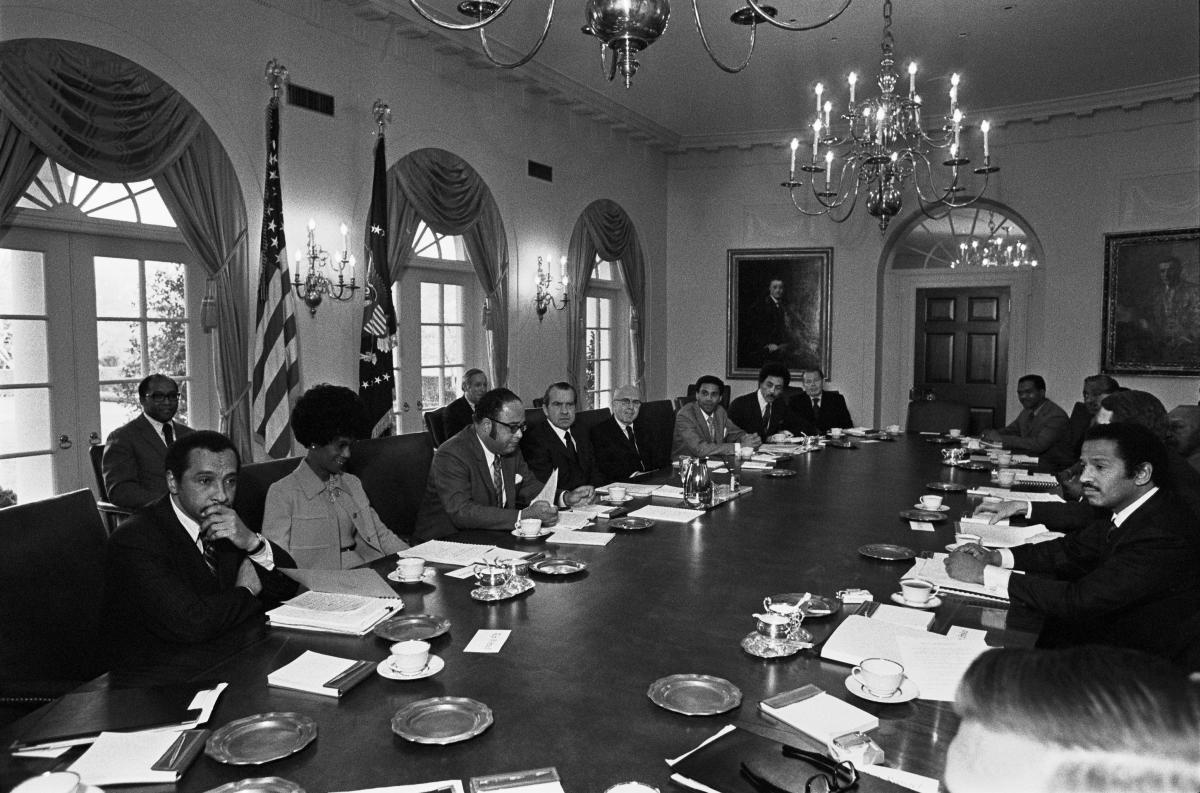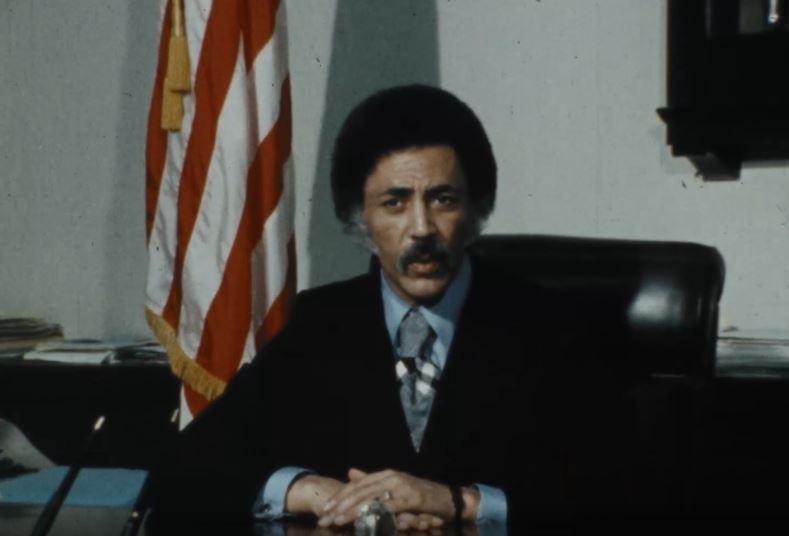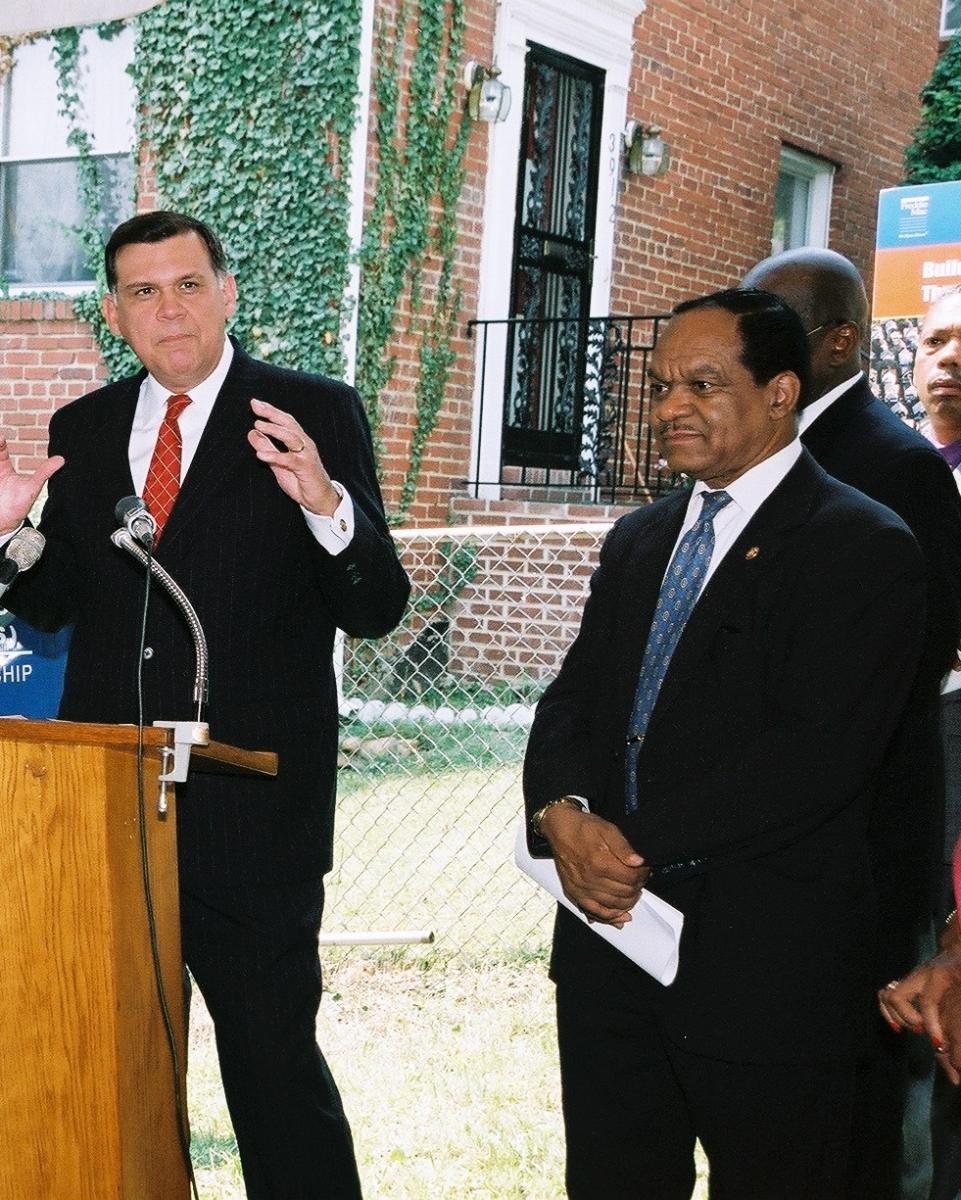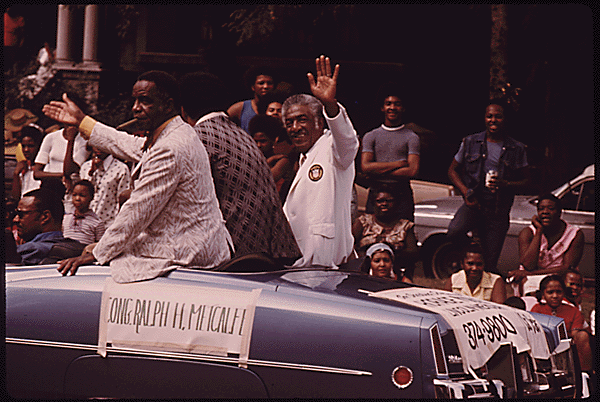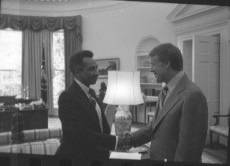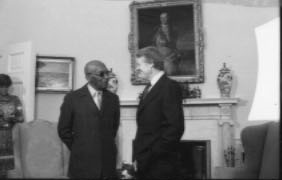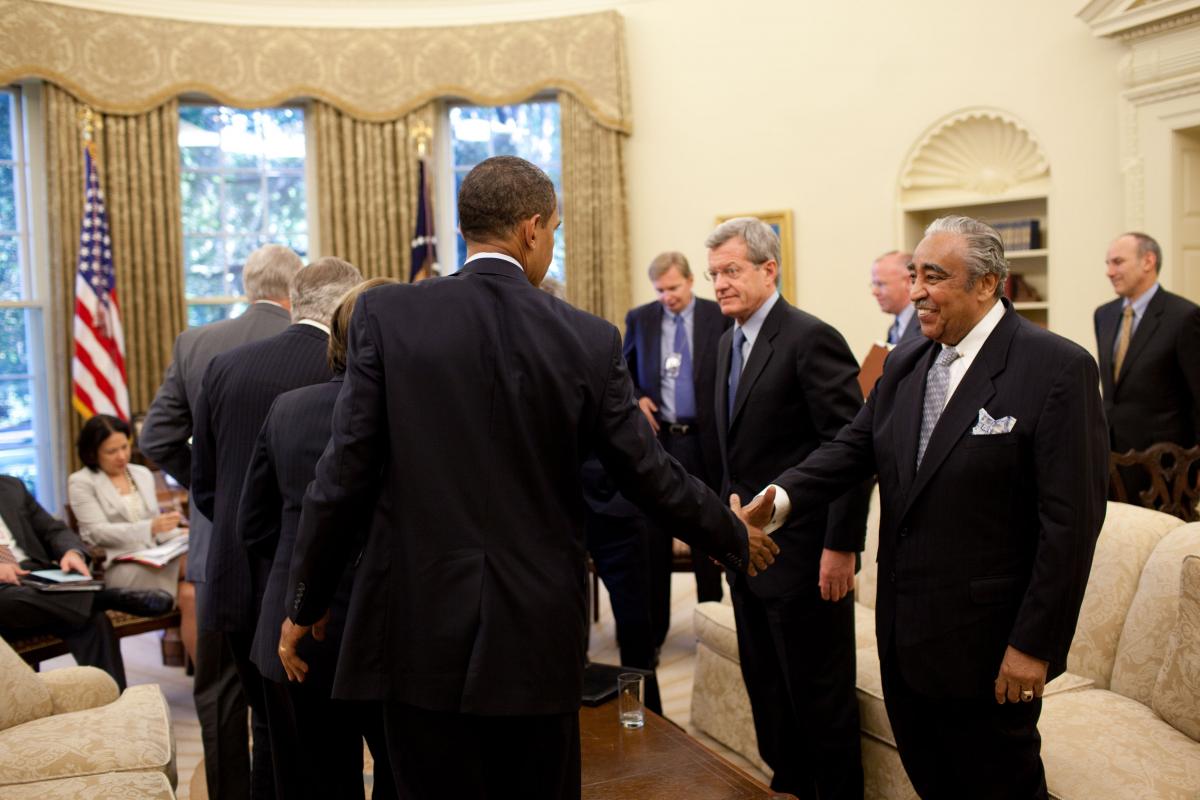
Congressional Black Caucus (CBC)
Search the Catalog for records on the Congressional Black Caucus Social Networks and Archival Contexts - Congressional Black Caucus
Founding Members of the Congressional Black Caucus
Bill Clay (D-MO) (April 30, 1931)
William Lacy Clay, Sr. was elected to the US House of Representatives in 1968, representing portions of St. Louis in Missouri's First District until 2001. Throughout his career he advocated on environmental, labor, and social justice issues. It was Clay that wrote to President Richard Nixon, “We now refuse to be part of your audience,” signalling the boycott of the 1971 State of the Union.
George W. Collins (D-IL) (March 5, 1925 - December 8, 1972)
George Washington Collins represented the 6th District of Illinois from 1970 to 1972. Collins came to the House of Representatives after serving as a local Chicago alderman. Collins died when a plane crashed on approach to Chicago's Midway International Airport. His wife, Cardiss Collins was elected to his seat, and served in Congress until 1997.
Social Networks and Archival Context - George W. Collins
John Conyers (D-MI) (May 16, 1929 - October 27, 2019)
Ron Dellums (D-CA) (November 24, 1935 - July 30, 2018)
Charles Diggs (D-MI) (December 2, 1922 - August 24, 1998)
Charles Coles Diggs, Jr. was the first African American elected to Congress from Michigan, serving from 1955 to 1980. Diggs was the only member of Congress to attend the trail of the murderers of Emmett Till. He also served as the first chairperson of the Congressional Black Congress, leading the 1971 boycott of the State of the Union. During his time in Congress, Diggs was known as a leading anti-Apartheid voice when he served in the Committee of Foreign Affairs.
Social Networks and Archival Context - Charles Diggs
Walter Fauntroy (D-DC) (February 6, 1933)
Augustus F. Hawkins (D-CA) (August 31, 1907 - November 10, 2007)
Augustus Freeman Hawkins was the first African American elected to Congress from California, serving from 1963 to 1991. He was the author of Title VII of the Civil Rights Act of 1964, and restored the honorable discharge of Black soldiers of the 25th Infantry Regiment who were wrongly accused of public disturbance in Brownsville, Texas in 1906. Throughout his career he was strongly committed to education and unemployment reform.
Social Networks and Archival Context - Augustus F. Hawkins
Ralph Metcalfe (D-IL) (May 29, 1910 - October 10, 1978)
Parren Mitchell (D-MD) (April 29, 1922 - May 28, 2007)
Robert N.C. Nix Sr. (D-PA) (August 9, 1898 - June 22, 1987)
Charles Rangel (D-NY) (June 11, 1930)
Louis Stokes (D-OH) (February 23, 1925 - August 18, 2015)
Louis Stokes was born in Cleveland, Ohio. He was the first African American elected to Congress to represent the state of Ohio, serving 15 terms from 1969 to 1999. Stokes was first elected in 1968 and was a member of the Select Committee on Intelligence, Ethics Committee, and the Appropriations Committee. Stokes also took part in notable Congressional investigations - for the assassinations of John F. Kennedy and Martin Luther King Jr., as well as the Iran-Contra Affair and ABSCAM. In 1992, Louis Stokes ran for president as a favorite son of Ohio.
